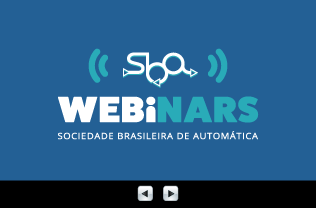2019 INTERNATIONAL CONFERENCE ON UNMANNED AIRCRAFT SYSTEMS (Updated CFP)
The 2019 International Conference on Unmanned Aircraft Systems, ICUAS’19, will be held on June 11-14, in the Atlanta Marriott Buckhead Hotel and Conference Center, https://www.marriott.com/atlbc, which is situated in a supreme location in the heart of Atlanta. June 11 will be a Workshop/Tutorial day, followed by a three-day technical Conference on June 12-14. Judging from the interest ICUAS has drawn over the past eight years and its growth, ICUAS’19 is expected to continue on this path and attract the highest number of participants from academia, industry, federal and state agencies, government, the private sector, users, practitioners and engineers who wish to be affiliated with and contribute technically to this highly demanding and evolving and expanding field. Details may be found at http://www.uasconferences.com and related links. ICUAS’19 is fully sponsored by the ICUAS Association, which is a non-profit organization. Information about the Association may be found at www.icuas.com. The major themes of ICUAS’19 will be: design for trusted and assured autonomy, metrics for autonomy, and design for resilience. These focus area topics are center-stage in the attempt to design and build high-confidence UAS/RPAS. In addition, ICUAS’19 will include a separate track on regulations, policy, legal and ethical issues that are essential to allow for integration of UAS/RPAS in the national airspace. National and international organizations, agencies, industry, military and civilian authorities are working towards defining roadmaps of UAS/RPAS expectations, technical requirements and standards that are prerequisite to their full utilization, as well as legal, policy and ethical issues. The next generation of UAS/RPAS is expected to be used for a wide spectrum of civilian and public domain applications. Challenges to be faced and overcome include, among others, see-and-avoid systems, robust and fault-tolerant flight control systems, payloads, communications, levels of autonomy, manned-unmanned swarms, network-controlled swarms, as well as challenges related to policies, procedures, regulations, safety, risk analysis assessment, airworthiness, certification issues, operational constraints, standardization and frequency management, all of paramount importance, which, coupled with ‘smart’, ‘environmentally friendly’ cutting edge technologies will pave the way towards full integration of UAS/RPAS with manned aviation and into the respective national airspace. ICUAS’19 aims at bringing together different groups of qualified military and civilian representatives worldwide, organization representatives, funding agencies, industry and academia, to discuss the current state of unmanned aviation advances, and the roadmap to their full utilization in civilian and public domains. Special emphasis will be given to research opportunities, and to ‘what comes next’ in terms of the essential technologies that need to be utilized to advance the state-of-the-art.
Papers must be submitted electronically. Go to https://controls.papercept.net. Click on “Submit a Contribution to ICUAS’19 and follow the steps. The paper format must follow IEEE paper submission rules. Submitted papers should be classified as Contributed, Poster or Invited Session papers. The maximum number of pages for a contributed/invited paper submission is 10, and for a poster paper is 6. Accepted, contributed/invited session papers only, will be allowed up to two additional pages for a charge of $100 per additional page. Illustrations and references are included in the page count. Poster papers will allow for researchers/practitioners to present novel/cutting edge ideas with potential, however, not yet fully developed. : Proposals must be submitted/uploaded electronically. A Summary Statement describing the motivation and relevance of the proposed session, paper titles and author names must be uploaded electronically by February 12, 2019. Authors must also submit full versions of invited papers electronically, marked as 'Invited Session Paper'. : Proposals for workshops/tutorials should contain title, the list of speakers, and extended summaries (2000 words) of their presentations. Proposals must be sent by e-mail to the Tutorial/ Workshop Chair by February 12, 2019.
: All submitted papers will undergo a peer review process following IEEE rules and standards. Authors will be notified of results at the latest by April 15, 2019. Accepted papers must be uploaded electronically no later than May 10, 2019. Authors are encouraged to accompany their presentations with multimedia material, which will be included in the Conference Digital Proceedings. Only Contributed or Invited Session papers will be acquired by IEEE and they appear in IEEE Xplore.
: Contributed/Invited Session papers will be grouped in Technical Sessions and will be allocated 20 minutes for oral presentation, which includes questions from the audience. Poster papers will be grouped based on subject. Presenters are encouraged to supplement the poster with additional slides, video or software demonstrations, etc. All poster paper presentations will be scheduled in one day.
For any additional information about ICUAS’19, e-mail Kimon Valavanis, kimon.valavanis@du.edu.
Informações
Encerramento: 14/06/2019 Local: Atlanta Marriott Buckhead Hotel & Conference Center 3405 Lenox Road NE, Atlanta, Georgia 30326 Site: http://www.uasconferences.com
- 12/02/2019 - Full Papers/ Invited Papers/Tutorial Proposals Due
- 15/04/2019 - Acceptance/Rejection Notification
- 10/05/2019 - Upload Final, Camera Ready Papers; Early Registration Deadline

Bruno Vilhena Adorno
Sócio desde 2012
Profissional
- Instituição:
- The University of Manchester
- Endereço Profissional:
- Department of Electrical and Electronic Engineering
School of Engineering
The University of Manchester
Sackville Street
Manchester M13 9PL
United Kingdom - Currículo Resumido:
- Bruno Vilhena Adorno obteve o título de engenheiro mecatrônico em 2005 e de mestre em engenharia elétrica em 2008, ambos pela Universidade de Brasília, e o título de doutor em sistemas automáticos e microeletrônicos em 2011 pela Universidade de Montpellier (França). Atualmente, é Senior Lecturer in Robotics (equivalente a Professor Associado) da Universidade de Manchester. De 2012 a 2020, foi professor do Departamento de Engenharia Elétrica da Universidade Federal de Minas Gerais (UFMG), onde foi co-fundador e co-líder do grupo de pesquisa Mecatrônica, Controle e Robótica (MACRO). Ele é membro sênior do IEEE, foi bolsista de produtividade em pesquisa do CNPq no triênio (2018-2021) e é o atual coordenador do Comitê Técnico de Robótica da Sociedade Brasileira de Automática (2017-2018 e 2019-2020). É autor ou co-autor de 17 artigos em periódicos e 35 em conferências / capítulos de livros. Ele é editor associado do IEEE Robotics and Automation Letters e do Journal of Control, Automation and Electrical Systems, também atua no corpo editorial da RSJ/IEEE International Conference on Intelligent Robots and Systems e do Congresso Brasileiro de Automática desde 2017. Seus interesses atuais de pesquisa incluem aspectos práticos e teóricos relacionados à cinemática, dinâmica e controle de robôs, com aplicações a manipuladores móveis, humanóides, sistemas de manipulação cooperativa, interação humano-robô e robótica de assistência.
- Lattes:
- http://lattes.cnpq.br/3363634987221133
- Endereço:
-
- Email:
- adorno@ieee.org

